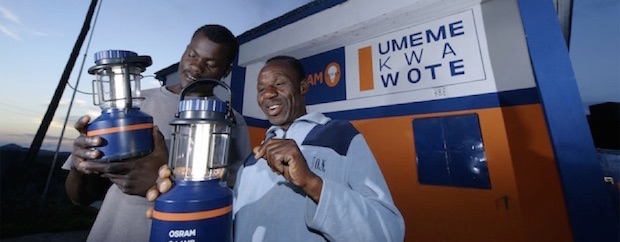
July 2015 - The Clean Development Mechanism (CDM) was created with the double aim to achieve cost-effective mitigation of greenhouse gases and to assist developing countries in achieving Sustainable development, based on their national development priorities.
However, responding to critique that the CDM is not significantly contributing to Sustainable development, the CDM Executive Board in 2012 developed the voluntary tool for describing Sustainable development co-benefits of CDM projects or PoAs (SD tool). The SD tool was launched by the CDM Executive Board at its 78th meeting and it went online on the UNFCCC CDM website 1 April 2014. The objective of the tool is to provide a means by which project participants (PPs) and coordinating / managing entities (CMEs) can highlight the development co-benefits of CDM activities in a way that: (a) it improves the Board’s ability to demonstrate that the CDM assists Non-Annex I Parties in achieving Sustainable development; (b) it harmonizes and makes publicly available the information relating to SD co-benefits in the context of the CDM; (c) it maintains the Parties’ prerogative to determine whether a CDM project activity or PoA assists in achieving Sustainable development.
In 2014, the German Environment Agency (UBA) tasked Wuppertal Institute and UNEP DTU Partnership (formerly UNEP Risoe Center) with conducting the research project „Evaluation and development of recommendations on the CDM EB’s Sustainable development tool including the sustainability requirements of other flexible mechanisms“. The discussion paper “Assessing Usefulness. Do Stakeholders Regard the CDM’s SD Tool as Practical?” reports on the project’s second work package, which consists of a literature review and interviews with selected host country governments, project developers and a buyer perspective on the usability of the EB’s SD tool.
Cookie Settings
Marketing-Cookies werden von Drittanbietern oder Publishern verwendet, um personalisierte Werbung anzuzeigen. Sie tun dies, indem sie Besucher über Websites hinweg verfolgen.
Provider:
Statistik Cookies
Statistik-Cookies dienen der Analyse und helfen uns dabei zu verstehen, wie Besucher mit unserer Website interagieren, indem Informationen anonymisiert gesammelt werden. Auf Basis dieser Informationen können wir unsere Website für Sie weiter verbessern und optimieren.
Provider:
Erforderliche Cookies
Erforderliche Cookies sind für den reibungslosen Betrieb der Website zuständig, indem sie Kernfunktionalitäten ermöglichen, ohne die unsere Website nicht richtig funktioniert. Diese Cookies können nur über Ihre Browser-Einstellungen deaktiviert werden.
Provider: